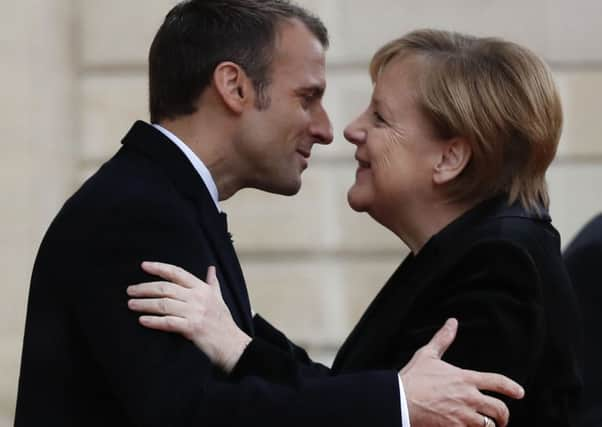Arts View; Yvette Huddleston - Peace is fragile and requires working on


Artist Robert Montgomery’s Peace Poem was on display in Dewsbury town centre for two days as part of Paper Peace a year-long arts project led by arts collective Emergency Exit Arts; a celebration of peace in this centenary year of the Armistice which marked the end of the First World War. Dewsbury-based arts charity Creative Scene is one of the national partners and Bradford’s Peace Museum is also involved as a heritage partner. Montgomery’s large-scale illuminated artwork displays the words ‘Peace is the Dream of a Shared Human Soul That We Build Every Day with Forgiveness and Kindness and Hope’ clearly communicating the idea that peace is not a passive, finite concept – it is fragile and requires working on. This is a notion understood by cross-border organisations – like the EU, for example – which have invested so much effort in maintaining good relations over the past 70 years since the end of the Second World War. Over the next few weeks Peace Poem will be visiting other towns around the country. If ever there was a time when we need messages of unity and hope, it is now.
A few years ago I read Hans Fallada’s novel Alone in Berlin. Originally published in 1947 it was the first novel by a German author to address the theme of domestic resistance to the Nazi regime and was inspired by the real-life activities of a middle-aged couple who, after the death of their only son fighting for his country in 1940, began a subtle campaign of civil disobedience, leaving postcards with anti-regime messages on them in the stairwells of office buildings. At the time of the book’s publication in English in 2009 it led to discussions around that perennial question – ‘what do you think you would have done if you had been alive in Nazi Germany?’ Well not to put too fine a point on it – and without wanting to sound melodramatic – now is your chance to find out.
Advertisement
Hide AdAdvertisement
Hide AdWe are living through a similar time of burgeoning extremist views, in our own country and others. As French president Emmanuel Macron so eloquently put it at the Armistice commemorations in France last weekend: “Old demons are resurfacing... Nationalism is a betrayal of patriotism. In saying ‘our interests first, whatever happens to the others’... you erase the most precious thing a nation can have... its moral values.”
Small acts of resistance matter. Mine is to continue to champion the arts and culture as an invaluable means of retaining our humanity in the face of hatred sown by people with a self-interested agenda. We can make a difference. We must at least try. If not, we could see our nation, to paraphrase Macron, ‘erase its moral values’. Shame on us if we allow that to happen.